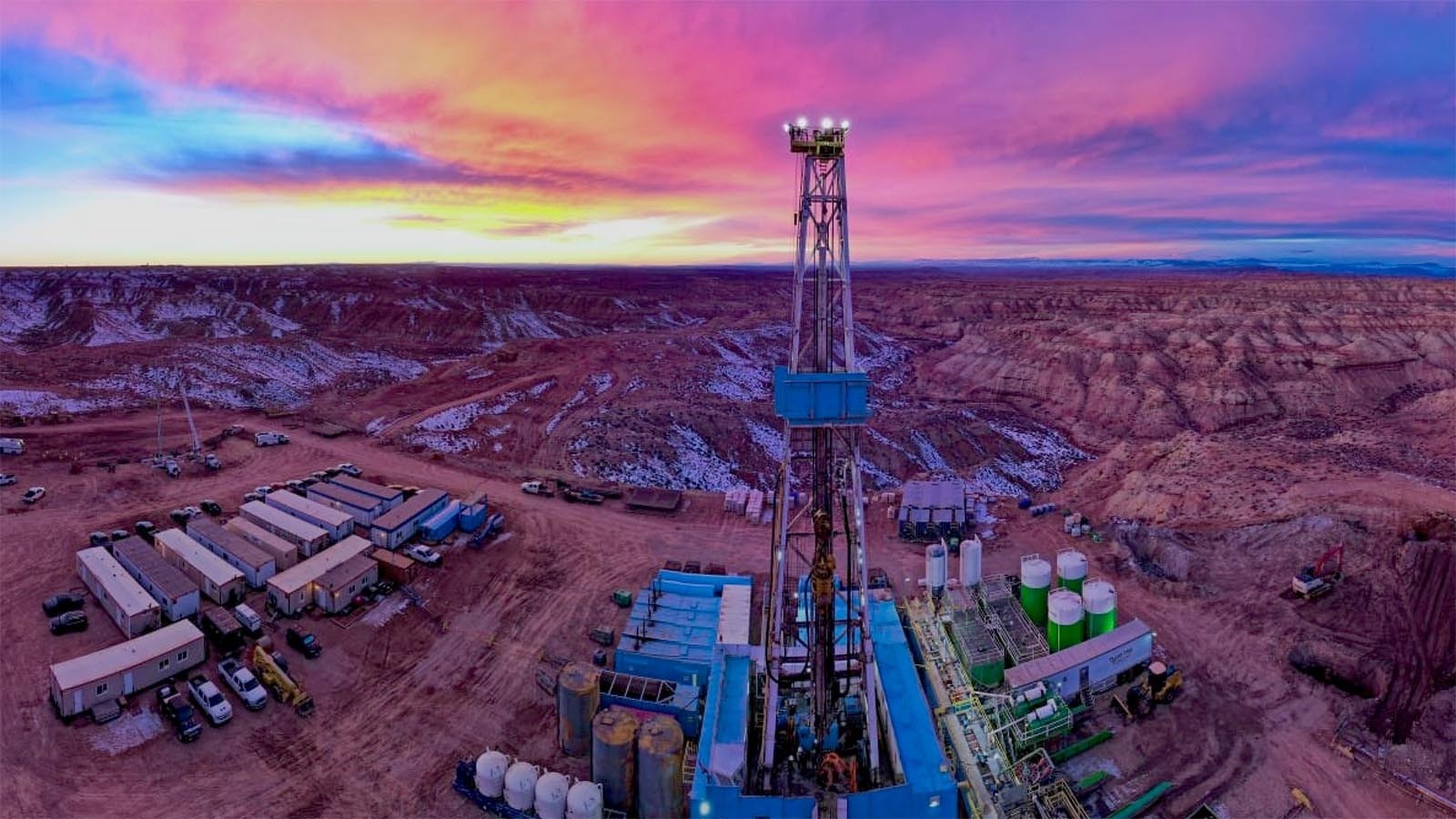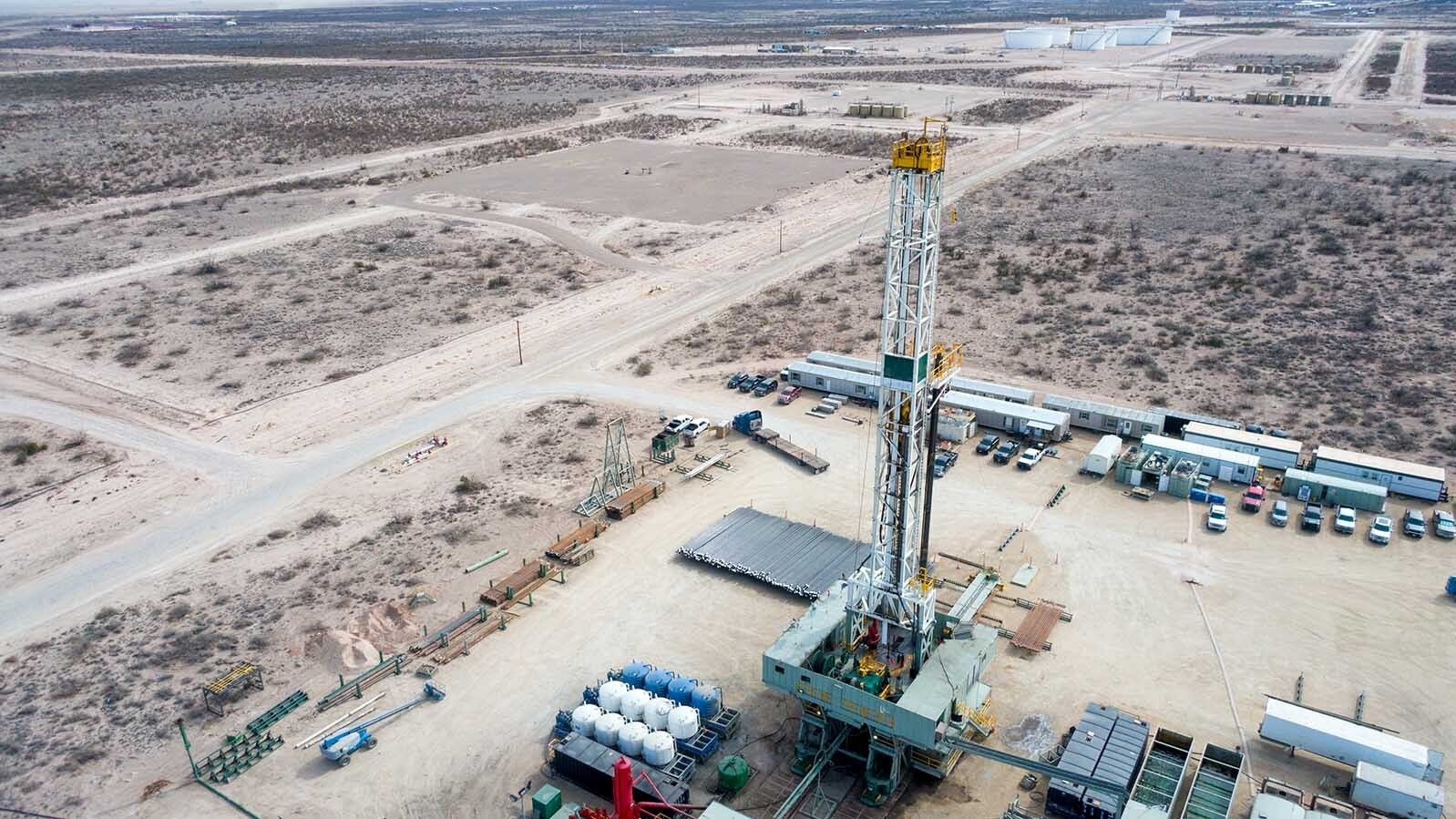The Wyoming Legislature is considering two bills aimed at pushing back against environmental, social and governance (ESG) scorecards or rankings.
Critics of the ESG movement, sometimes called “woke capitalism,” say it has become a formidable mechanism in pushing progressive policies by financially starving companies that don’t comply with ESG standards. In this way, the ESG movement has been able to circumnavigate democratic processes.
The Cowboy State is not alone in pushing back against ESG, as there are an estimated 60 pieces of legislation in states similar to those considered by the Wyoming Legislature.
The topic of this coordinated effort was discussed Friday in a panel titled “Defeating ESG” at the Heartland Institute’s International Conference on Climate Change in Orlando, Florida.
Among the panelists was Jason Isaac, director of Life:Powered, a national initiative of the Texas Policy Foundation to raise America’s understanding of the role cheap, abundant energy plays in human prosperity.
Ahead Of The Curve
Isaac testified this month at the Wyoming Senate Revenue Committee in favor of the two bills, which passed the committee unanimously.
Isaac was elected four times to the Texas Legislature and wrote successful legislation there that prohibits the state’s retirement and investment funds from businesses that boycott fossil fuel investments.
Isaac told Cowboy State Daily he was recently asked in an interview for Fast Company where the inspiration for the bill came from, and he told the reporter it was Wyoming.
Isaac said this national movement against ESG began in 2018 with the response from then-Treasurer Mark Gordon to Bank of the West when the company announced it was going to limit the business it would do with fossil fuel companies.
“It was really his leadership from the very beginning that was ahead of the curve that we would love for Wyoming to continue to follow when it comes to their contracts,” Isaac said.
Uncertain To Pass
Both current anti-ESG bills are sponsored by Sen. Bo Biteman, R-Ranchester. Senate File 159 involves state contracts and prohibits government entities from entering into contracts with companies for goods and services if those companies engage in economic boycotts for ideological reasons.
Senate File 172 does the same thing, but it applies to the hiring and retention of investment managers.
Senate File 159 passed the Senate Floor 25-6, and Senate File 172 passed 17-14. The bills were referred to the House Appropriations Committee, which recommended the House do not pass the bills.
They are now awaiting a first reading on the House Floor.
Successful Campaign
During his presentation at the panel, Isaac said the ESG movement has been highly successful in starving fossil fuel companies of capital and that the movement is highly connected to the Chinese Communist Party.
Private capital investment in the oil and gas industry has decreased from $50 billion in 2015 to $3 billion in 2021 – a 94% drop – Isaac said.
“It’s an astronomical decrease in funds available. It’s because the China ESG agenda is being weaponized against American energy producers,” Isaac said.
Isaac doesn’t shy away from stating that there’s a link between energy from fossil fuels and prosperity, and decarbonization will ultimately cause great harm.
“I like to tell people that capitalism and fossil fuels have lifted more people out of poverty than anything else in the history of mankind,” Isaac said.
Taking Off
In the past two years since Texas passed its anti-ESG law, the pushback among states has taken off, Isaac said.
When Texas passed its anti-ESG bill in 2021, representatives of Blackrock, a large investment firm that’s been an outspoken champion of ESG policies, showed up at the Life:Powered offices in Austin.
At the time, the economy in Texas was taking a large hit in the wake of the COVID-19 pandemic, and Isaac said he joked with the people from Blackrock about helping the state’s economy by flying private jets down from Wall Street.
“They didn’t think that was too funny,” Isaac said.
The representatives didn’t come to testify against the bill, and they told Isaac the company didn’t have a state lobby team. He said since so many states have begun taking action against ESG, many firms have begun hiring lobbyists.
“Well, I can honestly say I’ve created a lot of jobs. You see Blackrock ads on Fox News now and other networks. And you see that they have hired up big time around the country … They’ve got a ton of contract lobbyists,” Isaac said.
The Sri Lanka Example
Isaac began his presentation by saying, “I live a high-carbon lifestyle, and I think everyone else should too.”
He called the impacts of ESG “criminal” and illustrated its potential harm by pointing to what happened in Sri Lanka. The Asian nation had the highest ESG score of any country in 2020, aggressively pursuing net-zero policies that aim to make it so the country’s carbon dioxide emissions are negated.
Sri Lankan President Gotabaya Rajapaksa, during his 2019 campaign, promised to wean the country off modern fertilizers gradually. Instead, he completely banned them in April 2021. Sri Lanka received international praise for its commitment to ESG policies.
More than 90% of the country’s farmers used them before the ban. Following it, 85% experienced crop losses. The country descended into chaos, and Rajapaksa fled to Singapore, which has some of the highest per-capita carbon dioxide emission in the world.
Isaac pointed out that Rajapaksa would have been welcomed in impoverished countries that are achieving net-zero goals, such as Malawi. Instead, he fled to a wealthy country with high emissions.
“This is what net zero and ESG results in. It’s dangerous and deadly and quite honestly, it’s dumb. Food production [in Sri Lanka] went down 40%,” Isaac said.
Bypassing Democracy
Paul Watkins, managing partner of Fusion Law PLLC, discussed on the panel how ESG forces companies to align with the goals of net-zero as laid out in the international Paris Agreement, which 196 countries, including the U.S., signed onto in 2015 promising to limit their greenhouse gas emissions.
President Donald Trump pulled the U.S. out of the agreement, but President Joe Biden signed the U.S. back onto it immediately after taking office.
Watkins said that the ESG movement effectively implements the agreement without legislative approval.
“Because the Paris Agreement can’t get through the Senate. If you condition access to capital, by compliance with the Paris Agreement, you can effectively make the Paris Agreement law in the United States without having to pass a law,” Watkins said.
Dr. Marlo Lewis, senior fellow at the Competitive Enterprise Institute, a free-market think tank, discussed the proposed Security and Exchange Commissions climate disclosure law.
“One of the top priority goals is to get a company, that might be a coal company, to confess that it is unsustainable in a carbon constrained world,” Lewis said.
If implemented, the policy, Lewis explained, would drive capital out of a company before any policy made the company uneconomic. This way, Lewis said, the SEC can claim it has the climate disclosure rules for the sake of protecting shareholder value.
“That’s kind of like bombing the village in order to save it,” Lewis said.
Some Levity
While many of Isaac’s explanations of the impacts of anti-fossil fuel policies driven by ESG were bleak, including tales of women in Ethiopia walking miles across the desert for water, he lightened the presentation with some humor.
Several years ago, the polar bear was said to be on the verge of extinction as a result of the impacts of global warming. The mammal became a sort of poster child for victims of climate change.
In fact, their numbers have exploded. In the 1960s, populations of polar bears were around 10,000. Today, there are about 40,000.
“If the polar bear is the fair metric measurement of climate change, mission accomplished. We’ve won, we’re done. Let’s go home. … Now we’re too busy killing whales along the East Coast,” Isaac joked, referring to the increased number of dead whales showing up on East Coast beaches, which some have speculated may be due to offshore wind installations.
Isaac also joked about bringing Texas Sen. Ted Cruz and New York Rep. Alexandria Ocasio-Cortez together with a proposal to build a wall along the southern border made out of solar panels.
“If we do this, we produce 10% of the electricity that our country produces, when the sun is shining. That’s pretty significant, and no one will ever cross this border, because it will be a mile wide,” Isaac said.





